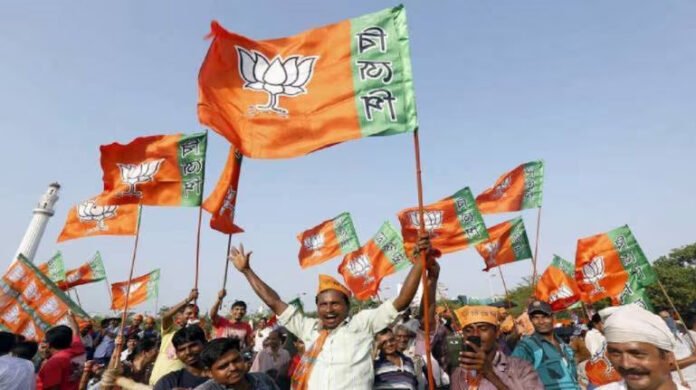In a move that reflects both renewal and continuity, the Bharatiya Janata Party (BJP) recently unveiled its list of candidates for upcoming elections, introducing 19 fresh faces while notable figures, including three ministers, found themselves left out. The inclusion of four women in the list underscores the party’s commitment to gender representation, while the absence of seasoned leaders hints at a broader strategy aimed at reshaping the political landscape.
The introduction of 19 new faces within the BJP’s candidate list signals a strategic shift towards injecting fresh energy and talent into the party’s ranks. With politics evolving rapidly and public expectations undergoing constant change, the decision to bring in new blood reflects the party’s responsiveness to emerging challenges and its commitment to staying relevant in a dynamic political environment.
Among the newcomers, four women find themselves on the BJP’s roster, highlighting the party’s emphasis on gender diversity and inclusivity. By actively recruiting women candidates, the BJP not only broadens its appeal to diverse segments of society but also reinforces its commitment to empowering women in politics—a crucial step towards building a more representative and equitable democracy.
However, alongside the introduction of new faces, the BJP’s decision to leave out three ministers from its candidate list has raised eyebrows and sparked speculation about the party’s internal dynamics and future direction. While the omission of seasoned leaders may seem surprising at first glance, it is indicative of the party’s willingness to embrace change and promote meritocracy over entrenched hierarchies.
The absence of these ministers from the candidate list underscores the BJP’s emphasis on performance and accountability, sending a clear message that incumbency alone does not guarantee a place on the ballot. In a political landscape characterized by rapid shifts and evolving public sentiment, the party appears keen on rewarding merit and fostering a culture of excellence among its cadre.
Moreover, the decision to exclude certain incumbents may also be driven by strategic considerations aimed at rejuvenating the party’s image and responding to changing voter preferences. By introducing new faces and fresh perspectives, the BJP seeks to appeal to a broader cross-section of the electorate and reinvigorate its support base ahead of crucial elections.
The reshuffling of the BJP’s candidate list reflects a broader trend within Indian politics, where parties increasingly recognize the need for adaptability and innovation in the face of evolving socio-economic dynamics and shifting voter demographics. In an era marked by rapid globalization, technological advancements, and changing social norms, political parties must continually reinvent themselves to remain relevant and effective.
Furthermore, the inclusion of four women in the BJP’s candidate list is a positive step towards addressing gender disparities in Indian politics. Despite progress in recent years, women continue to be underrepresented in political leadership roles, with structural barriers and entrenched patriarchal norms hindering their participation and advancement.
By fielding women candidates, the BJP not only promotes gender equality within its own ranks but also sets a powerful example for other political parties and society at large. The inclusion of women in decision-making processes not only enhances the legitimacy and effectiveness of governance but also ensures that diverse perspectives are taken into account in policy formulation and implementation.
Moving forward, it is essential for the BJP to provide adequate support and resources to its new candidates, ensuring that they are equipped with the necessary skills and knowledge to navigate the complex world of politics. Training programs, mentorship initiatives, and capacity-building workshops can play a crucial role in empowering newcomers and maximizing their potential as leaders.
In addition, the BJP’s decision to introduce 19 new faces, including four women, while leaving out three ministers from its candidate list, reflects the party’s commitment to renewal, inclusivity, and performance-driven politics. As India’s political landscape continues to evolve, parties must adapt to changing realities and embrace diversity to remain relevant and effective. By promoting fresh talent and fostering gender representation, the BJP paves the way for a more inclusive and vibrant democracy, where meritocracy triumphs over incumbency and diversity is celebrated as a strength rather than a weakness.


